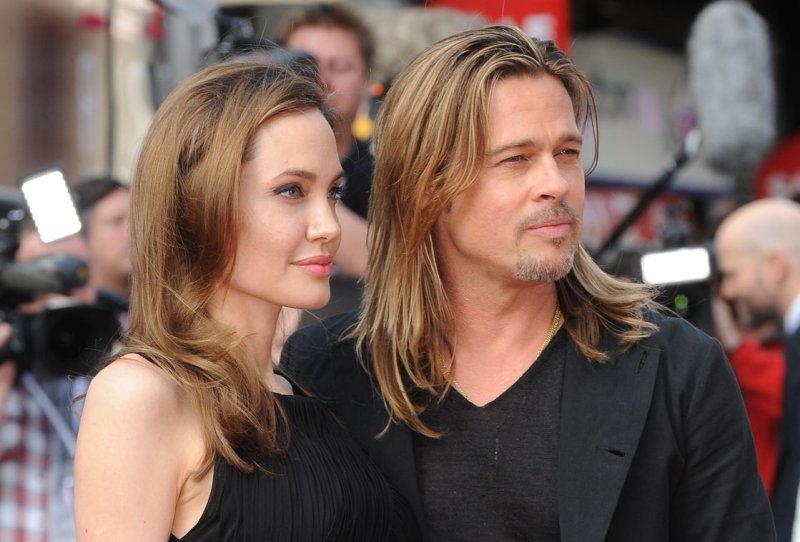Angelina Jolie's story was associated with greater confusion. American actress Angelina Jolie and American actor Brad Pitt attend the world premiere of "World War Z" at The Empire Leicester Square in London on June 2, 2013. UPI/Paul Treadway |
License Photo
COLLEGE PARK, Md., Dec. 19 (UPI) -- Widespread awareness of Angelina Jolie's preventive double mastectomy did not translate into increased knowledge of breast cancer risk, U.S. researchers say.
Jolie heightened awareness about breast cancer when she announced in a New York Times op-ed she had undergone a preventive double mastectomy, but researchers at the University of Maryland School of Public Health and the Johns Hopkins School of Public Health revealed widespread awareness of Jolie's story did not translate into increased understanding of breast cancer risk.
The survey of more than 2,500 U.S. adults found three-quarters were aware of Jolie's story, but fewer than 10 percent could correctly answer questions about the BRCA gene mutation that Jolie carries and the typical person's risk of developing breast cancer.
Though very rare, women with harmful mutations in either of two genes, BRCA1 and BRCA2, have a risk of breast cancer that is about five times the normal risk, and a risk of ovarian cancer that is about 10 to 30 times normal. The average woman's risk of getting breast cancer over her lifetime if she does not have a BRCA mutation is between 5 percent and 15 percent.
"Ms. Jolie's health story was prominently featured throughout the media and was a chance to mobilize health communicators and educators to teach about the nuanced issues around genetic testing, risk, and prophylactic surgery," lead author Dina Borzekowski of the University of Maryland School of Public Health's Department of Behavior and Community Health.
"It feels like it was a missed opportunity to educate the public about a complex but rare health situation."
Additionally, exposure to Jolie's story was associated with greater confusion, rather than clarity, about the relationship between a family history of cancer and increased cancer risk.
About half incorrectly thought that a lack of family history of cancer was associated with a lower than average personal risk of cancer, and among respondents who had at least one close relative affected by cancer, those who were aware of Jolie's story were less likely than those who were unaware of her story to estimate their own cancer risk as higher than average -- 39 percent vs. 59 percent.
"Since many more women without a family history develop breast cancer each year than those with, it is important that women don't feel falsely reassured by a negative family history," study co-author Dr. Debra Roter, director of the Center for Genomic Literacy and Communication at the Johns Hopkins Bloomberg School of Public Health, said.















